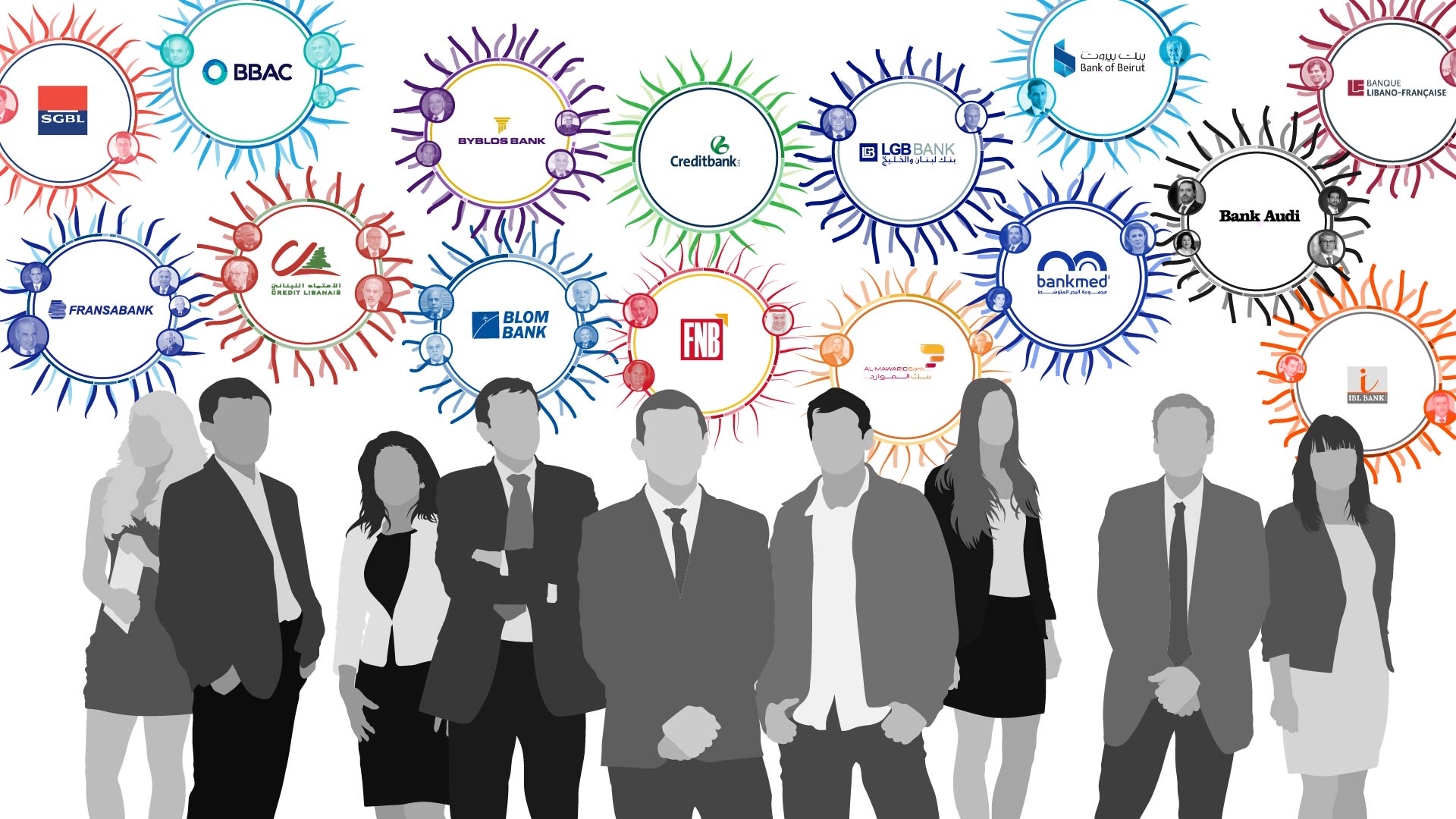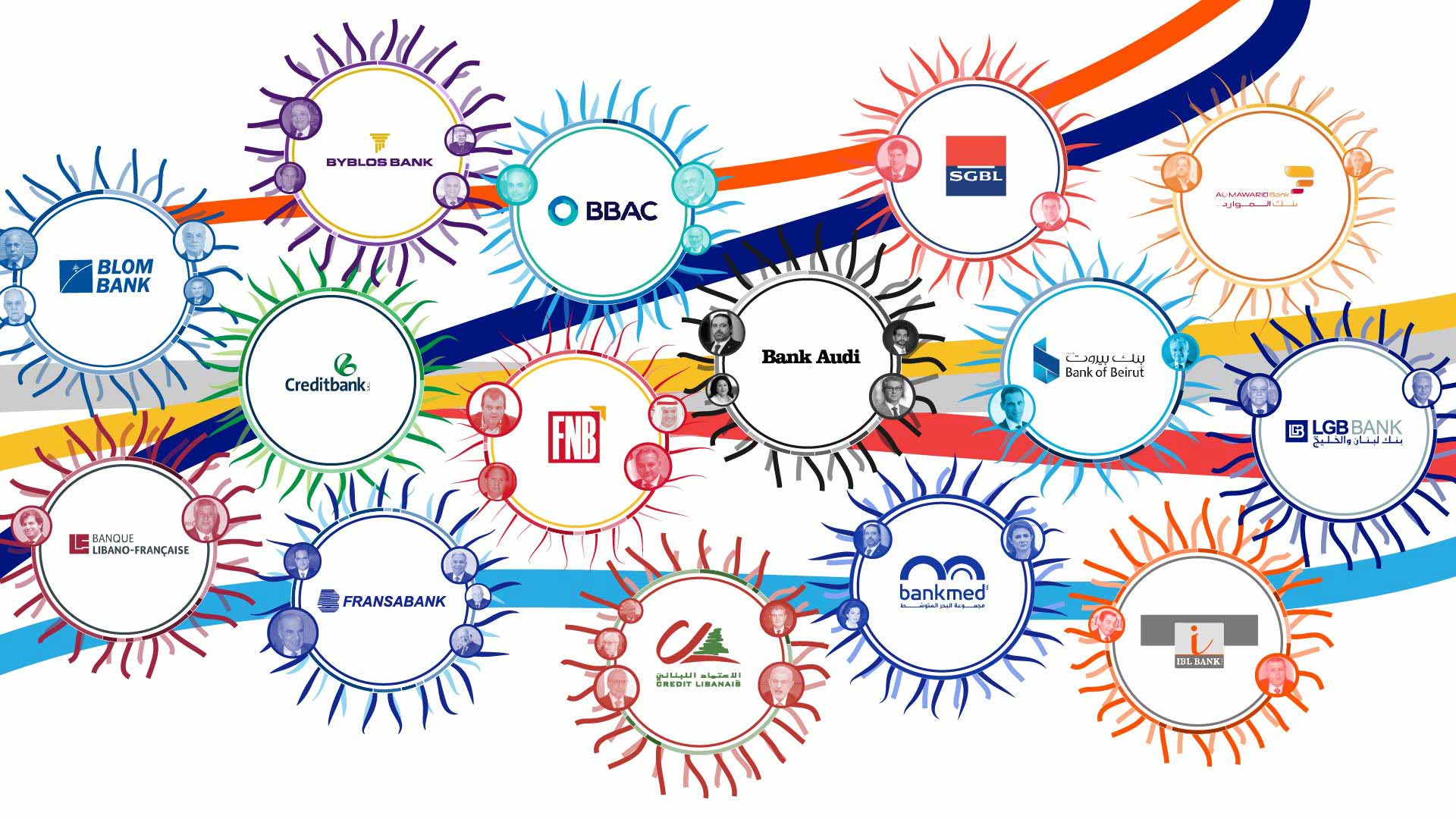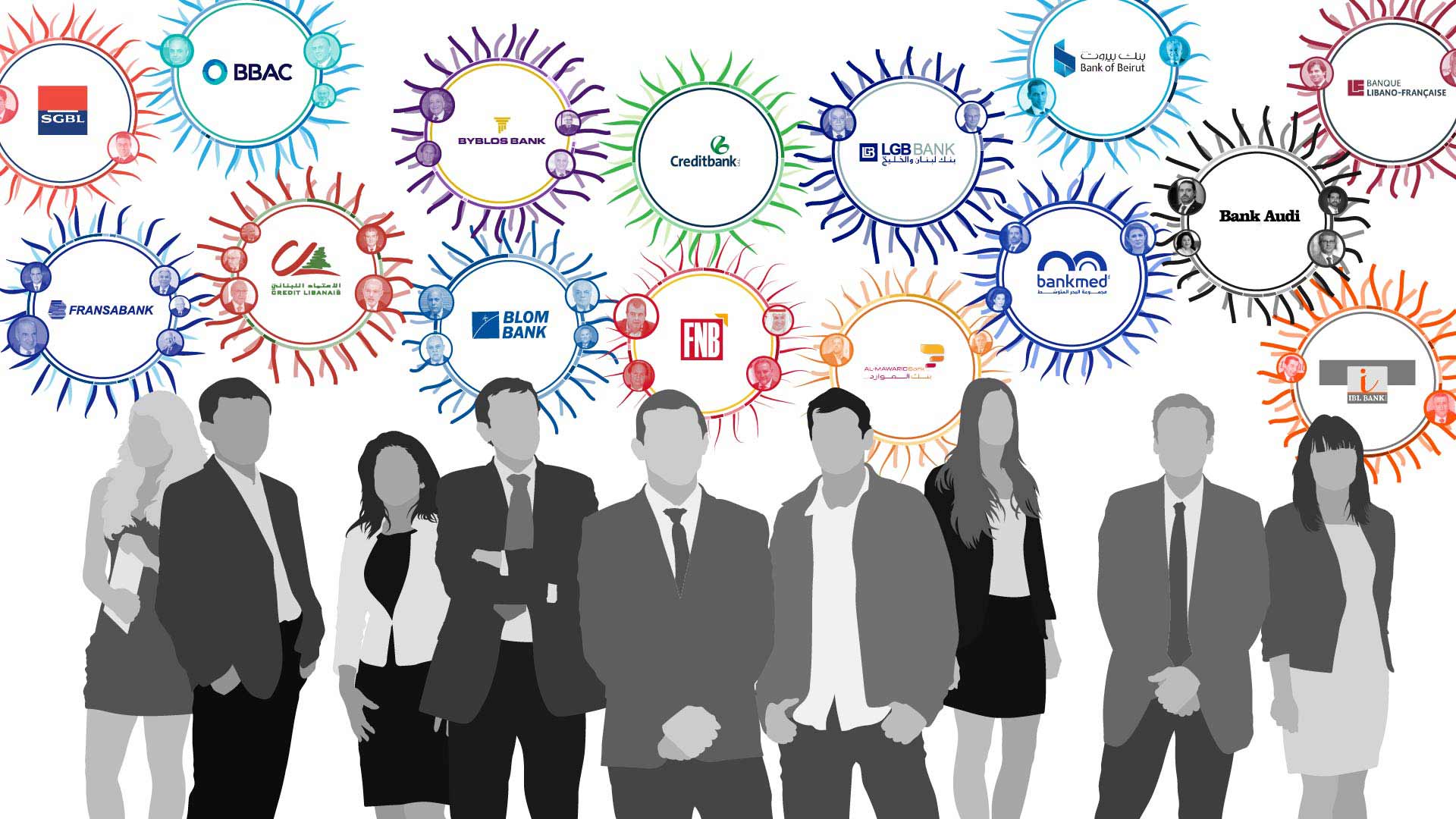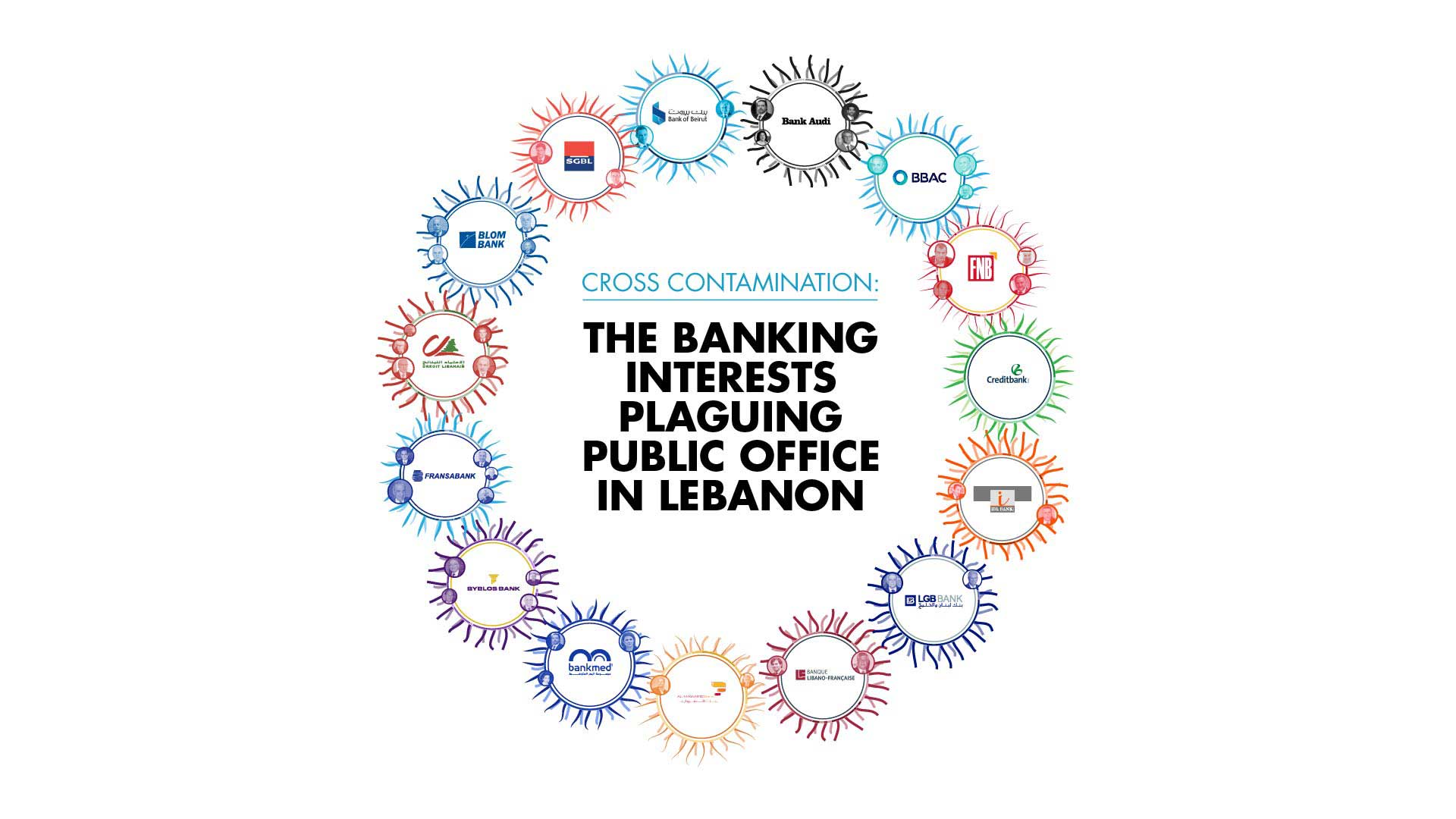The Lebanese have known since at least the 1960s that the banks run the country, but we have known this in the abstract. We have used the vague pronoun hineh, ‘them’, to describe these de factor rulers. But Lebanon is not ‘theirs’ and ‘they’ have a name, a face, bank accounts, and registered financial interests — which means if ‘they’ have committed crimes then ‘they’ can be held liable.
The Alternative’s joint investigation with the Depositors Union is an attempt to finally end this anonymity and to dispose of the notion that ‘their’ identities and vested interests are somehow amorphous. This opens the door to the accountability process being more targeted and serious by revealing who from the ruling elite is behind the country’s biggest banks. This knowledge is more important than ever because the concentration of wealth among financiers who double as public servants has entrenched us in a recurring loop of financial nightmares and kept our society from becoming what most of us want it to be: one that is more equitable, prosperous, and just.
But the way we, as a country, have conducted our affairs, where every cabinet (including this one) has a C-level executive as a minister, and bankers unabashedly parade around as qualified MPs and public servants, means nothing gets by without the banks on board. Of course, Lebanon is not alone when it comes to undue influence of financiers on politics. Our country is exceptional, however, in how unrestrained this influence has been and the devastation it has wrought upon the rest of our nation.
Yet today, as we witness the breakdown of our economy, the impoverishment of our nation, and the destitution of so many of our fellow Lebanese, we must keep in mind that there is a way out. We all know that the banking sector is today anything but the “essential pillar of the economy” it claims to be and as so many of us believed pre-2019. If anything, the banking sector has become a pillar of shame, a testament to how we have allowed our country to be run because we believed we could not change it. We had only ‘them’ to blame – until now.
This report is a giant leap toward establishing a chain of accountability for those who potentially abused their public office for private gain. It helps name those who benefited from the regulated Ponzi scheme run by the banks, the state and the central bank prior to 2019, and who today continue to dodge accountability and protect their wealth. Not in abstract, not as a concept, but in black, white, and colour. What we do with this information is another story.
As ever we can skim, smirk and go on with our day hoping to cope with the daily grind as the value of our life savings evaporates. Alternatively, we can decide to stop allowing the country to be run like a bank or a family business and start running Lebanon like it belongs to all of us, and not to all of ‘them.’
Sami Halabi
Editor-in-Chief
The Alternative



